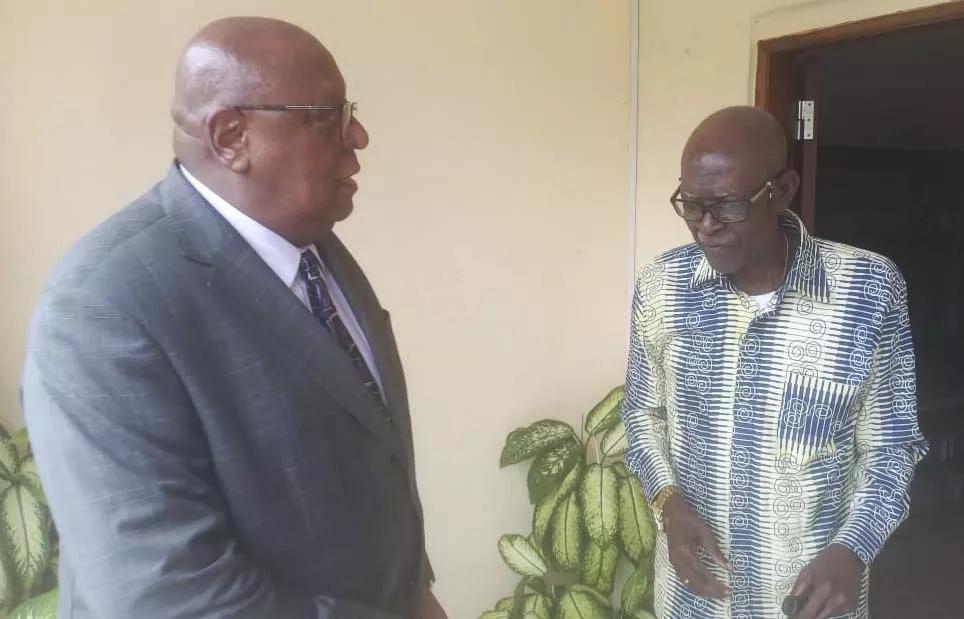Africa-Press – Angola. Singer and composer Elias Dya Kimuezu defended, Saturday, at the Kilamba Recreational and Cultural Center, in Luanda, that music should be included in the History of Angola as one of the tools that contributes to the National Liberation Struggle against Portuguese colonial oppression.
The opinion of the King of Angolan music was presented during a lecture under the theme “the contribution of Angolan music to the National Liberation Struggle”, in which dozens of artists and researchers in the field of singing participated, with the lecturers being Osvaldo Mboco, Pedro Rosa and Elias Dya Kimuezu.
Both corroborated that the musicians actively participated in the Armed Struggle process.
Elias Dya Kimuezu considered it “a great honor” to share knowledge about Angolan music, in particular semba, with young people and colleagues of his generation.
He highlighted the importance of the lecture as it addressed music as one of the tools used against colonial oppression, for a just cause at a time when Angolans were eagerly awaiting the proclamation of National Independence.
“Kota” Elias, as he was welcomed during the talk, made it known that his songs convey feelings of hope, love and peace, as well as singing about realities, especially what he experienced in that time of colonial oppression.
Although he considered it “a surprise” to approach the topic, Elias Dya Kimuezu expressed interest in being available to participate regularly in meetings of this nature, we always “learn something”, he revealed.
He recalled that, at that time, the performances were held in different spaces on the outskirts of Luanda (musseques) or neighborhoods, particularly in recreational centers, and considered them to have been “good times”.
For Osvaldo Mboco, music played a significant role in the country’s Independence. He regretted the fact that the History of Angola did not make tangible mention that the process of the country’s Liberation Struggle relied on the contribution of songs as an essential element for the freedom of Angolans.
“We must not forget the singers who had songs as weapons for the liberation of the people. These are David Zé, Artur Nunes, Carlitos Vieira Dias, Prado Paím, Carlos Lamartine, Barceló de Carvalho “Bonga”, Belita Palma, Lourdes Van-Dúnem, Sofia Rosa, Carlos Burity, Duia, Rui Mingas, Fontinhas, Dina Santos, Dominguinho, André Mingas, Amadeu Amorim, Liceu Vieira Dias, and the musical groups N’gola Ritmo, Os Kiezos, Jovens do Prenda, Negoleiros do Ritmo, Os Merengues and others”.
The researcher and author of the book “O Nosso Semba – Homage to Joãozinho Morgado”, Pedro Rosa, stated that the music of “Kota” Elias Dya Kimuezu had an active participation in the National Liberation Struggle, singing in Kimbundu, and had even more importance especially for the “mommies” who did not know how to speak Portuguese.
Pedro Rosa made it known that Elias Dya Kimuezu performed his first show at Centro Recreativo Maxinde with Os Kiezos, in 1965, thus opening a distant and prestigious path into the world of music.
The King of Angolan music, among several hits, is the author of the songs “Mualunga”, “Ressurreição”, “Muenhu wa muto” and “Zum-Zum”, with participations by Barceló de Carvalho “Bonga”, Rui Mingas, Teta Lando and of the Marimbeiros of Duque de Bragança.
For More News And Analysis About Angola Follow Africa-Press






